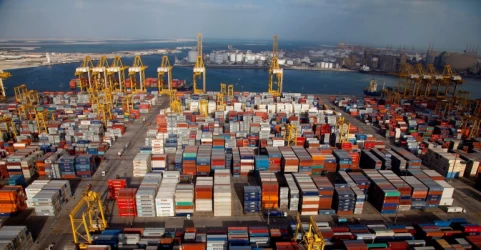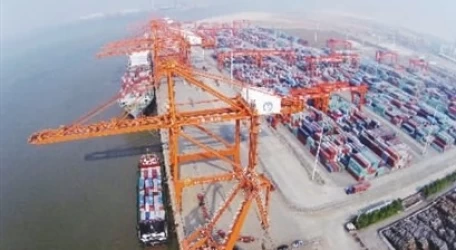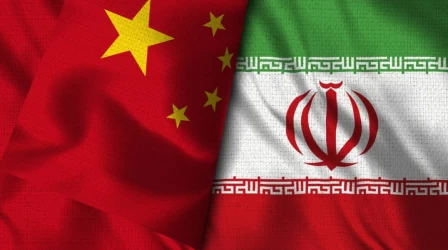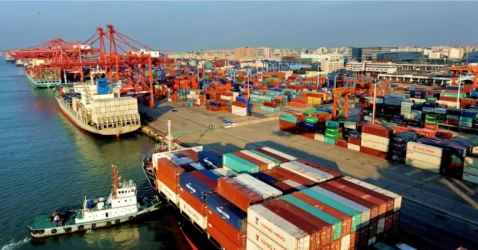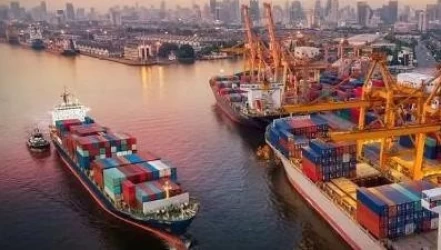Guide to trade with Egypt, sea transportation
Egypt, with its strategic location at the crossroads of Europe, Africa, and Asia, plays a pivotal role in global maritime trade. The country's vast network of ports, particularly its access to the Suez Canal, makes it a key player in international shipping and logistics. For businesses looking to engage in trade with Egypt, understanding the dynamics of maritime transport is essential. This article offers a comprehensive guide to trade with Egypt, focusing on maritime transport, major ports, regulations, and logistics services.
1. Strategic Importance of Egypt in Global Trade
Egypt’s geographical position offers a critical advantage for global maritime routes. The Suez Canal, which connects the Mediterranean Sea to the Red Sea, is one of the world’s busiest waterways, offering the shortest sea link between Europe and Asia. Nearly 12% of global trade passes through the canal, making Egypt an integral part of international logistics and a lucrative market for maritime businesses.
2. Key Ports in Egypt
Egypt boasts several major ports that facilitate its maritime trade. These ports are crucial for both imports and exports, offering facilities that accommodate large container ships, bulk cargo, and roll-on/roll-off services for vehicles. Some of the key ports in Egypt include:
- Port of Alexandria: As Egypt's largest and most significant port, Alexandria handles a significant portion of the country's imports and exports. It’s well-connected to the rest of Egypt and serves as the gateway to the capital, Cairo.
- Port Said: Situated at the northern entrance of the Suez Canal, Port Said is a vital hub for transshipment and container handling. Its strategic location makes it a key player in Mediterranean and Red Sea shipping routes.
- Suez Port: Located at the southern end of the Suez Canal, Suez Port is essential for vessels transiting between Europe, Africa, and Asia. It handles a wide variety of cargo, including bulk goods, petroleum products, and containers.
- Port of Damietta: Known for its large container terminal, Damietta is crucial for handling containerized cargo and bulk goods such as grain and wood.
- Ain Sokhna Port: This modern port is located near the southern end of the Suez Canal and is primarily used for container traffic and liquefied natural gas (LNG).
3. Regulations and Customs Procedures
Egypt's regulatory framework is overseen by the Egyptian Customs Authority, which implements rules for the import and export of goods. Businesses looking to trade with Egypt must familiarize themselves with customs regulations, including import duties, taxes, and required documentation. Key documents for maritime trade include:
- Bill of Lading: A legal document between the shipper and the carrier detailing the type, quantity, and destination of the goods being carried.
- Commercial Invoice: This document provides a detailed list of the goods being shipped, including prices and payment terms.
- Certificate of Origin: This certificate verifies the country in which the goods were manufactured or produced.
- Import License: Certain goods may require specific import licenses, especially in industries such as pharmaceuticals and agriculture.
4. Logistics and Shipping Services
Egypt has a well-developed logistics infrastructure that supports its maritime trade. Global shipping lines such as Maersk, MSC, and CMA CGM operate in Egyptian ports, offering extensive container and cargo services. Egypt’s maritime sector also benefits from robust road and rail networks that link ports to inland markets, including the Nile River, which provides an additional transport route.
Additionally, Egypt has several free trade agreements (FTAs), including the Egypt-EU Association Agreement and the Greater Arab Free Trade Area (GAFTA), which facilitate smoother trade processes and reduced tariffs with key trading partners.
5. Opportunities and Challenges
The maritime transport sector in Egypt offers significant opportunities for international businesses, particularly in areas such as logistics services, port management, and trade facilitation. However, businesses should also be aware of potential challenges, including:
- Port Congestion: Major ports like Alexandria and Port Said often experience congestion, leading to delays in cargo handling.
- Customs Delays: While Egypt has made efforts to streamline customs procedures, delays in processing can still occur, particularly for specific goods.
- Political and Economic Factors: Political stability and economic policies can impact trade conditions in Egypt. Businesses must stay informed about developments that could affect shipping schedules, customs regulations, or investment opportunities.
6. Conclusion
Egypt's strategic location and world-class port infrastructure make it a prime hub for maritime transport and trade. Businesses seeking to engage in trade with Egypt must navigate its customs regulations, understand the capabilities of its major ports, and leverage the logistical services available. By doing so, they can tap into a market that serves as a gateway to Africa, Europe, and Asia, benefiting from the country’s prominent position in global trade routes.
If you have any specific questions or need further assistance, feel free to ask!







